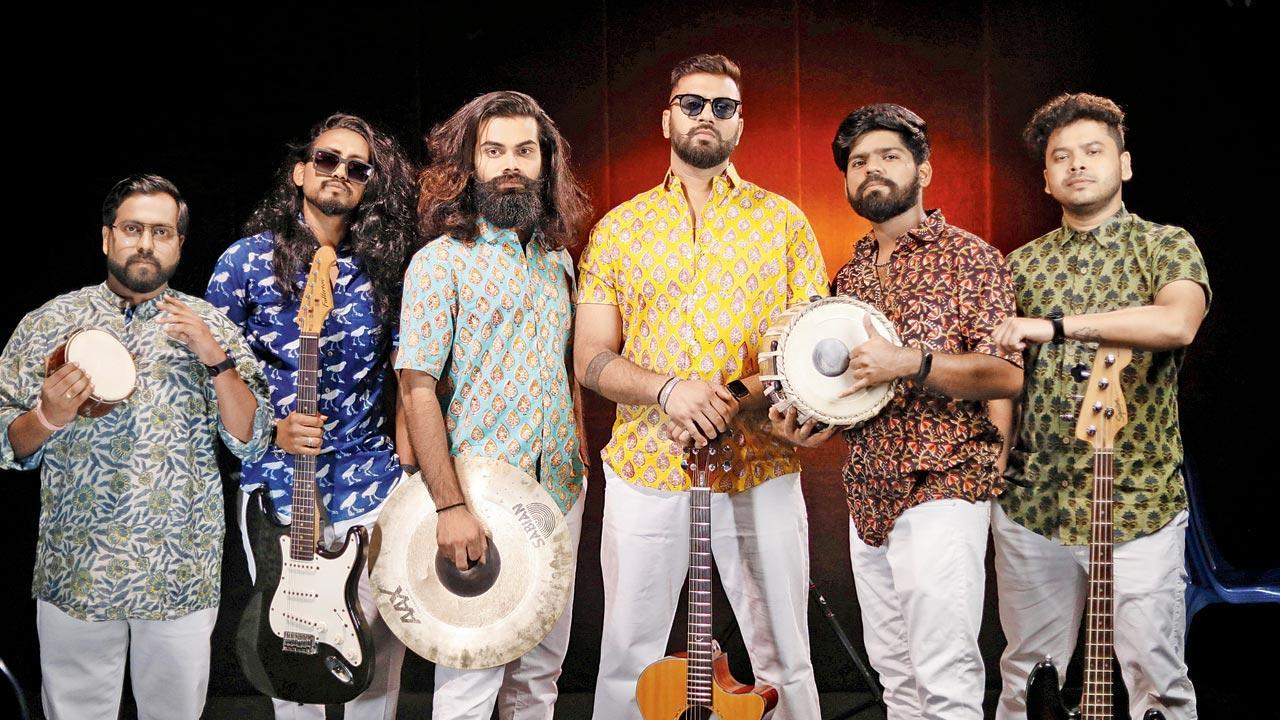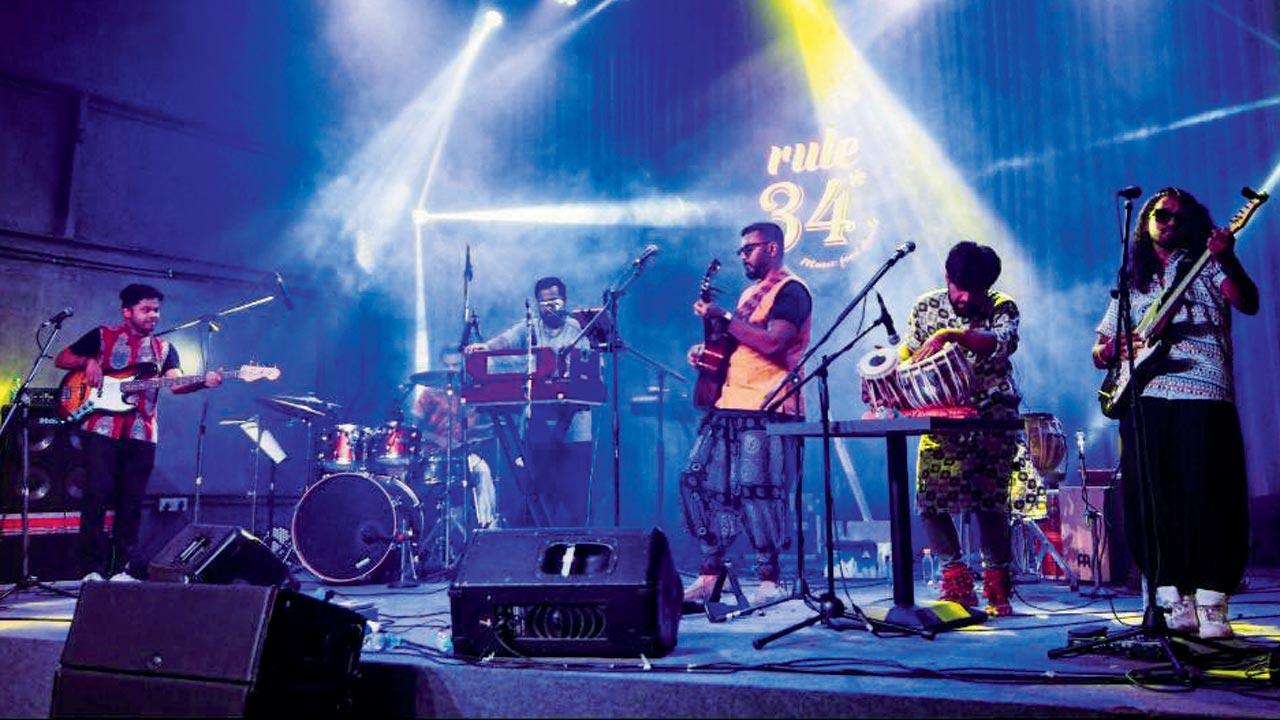A vernacular folk-fusion band in the city seeks to revive and reimagine the tradition of Marathi abhangs to attract millennial listeners

(From left to right) Tushar Totre, Ajay Vavhal, Dushyant Deorukhkar, Pratish Mhaske, Viraj Acharya and Swapnil Tarphe of Abhanga Repost
For a generation moving away from traditional notions, the rituals of Vaarkaris and their songs might feel archaic. The six-member band, Abhanga Repost, hopes to change this with their updated avatar of abhangs.
Formed in 2015, the band released their debut album Vaari — a compilation of sixsongs — in July this year. Each song is based on a famed abhang — devotional songs popular in Marathi. Dushyant Deorukhkar, drummer of the band, tells us, “I was in KC College, Churchgate, with Swapnil Tarphe [bass guitarist] and Viraj Acharya [tabla and percussion] when we started performing at festivals around the city. The drive was to do something original in the Marathi language.”
The band later came together with lead vocalist Pratish Mhaske, Ajay Vavhal (electric guitar) and Tushar Totre (harmonium) joining the team to create folk-fusion songs inspired by abhang poetry.
 The band playing together at a previous event
The band playing together at a previous event
Born during the Bhakti Movement between the 13th and 16th centuries, Marathi abhangs capture a wide genre of subjects from social justice and humanism to spirituality. Deorukhkar reveals that the poems affected the band just as much as the influence of Indian Ocean, Swarathma or the classic Led Zeppelin. “The idea was to introduce these poems to a millennial generation,” Mhaske points out.
The complexity of the poems also meant careful research, conversations with keertankars (traditional singers) and poets, Tarphe describes. “Each person brought their own perspectives of the songs. In the end, all these elements coloured our creation process,” he notes. The album is a mix of genres and composition styles. Sant Tukaram’s Lahanpan dega deva shapes into a pleasing pop-synth track, while Sant Tukdoji’s Kashala kashi jato re baba is coloured with soft-rock rhythms.
Deorukhkar clarifies that their music defies genres. Sharing the example of Bhoot jabar from their latest album, the drummer explains how the bharud (folk genre) form transformed into reggae rhythms that also use spoken verses and a non-structured composition style. “Ours is not a genre-specific music but rather an effort to connect with people, and to get them to respond to the songs,” he adds.
Currently, the band is working on their next album, which they plan to release in 2023. This time, they hope to include Sant Kabir, Bulle Shah and Sant Namdev’s verses in Punjabi. Deorukhkar says, “All these poets urge that if you look at the world with love, you will see past the differences of humanity.” Bob Marley would agree.
Log on to Vaari by Abhanga Repost on Spotify
 Subscribe today by clicking the link and stay updated with the latest news!" Click here!
Subscribe today by clicking the link and stay updated with the latest news!" Click here!










